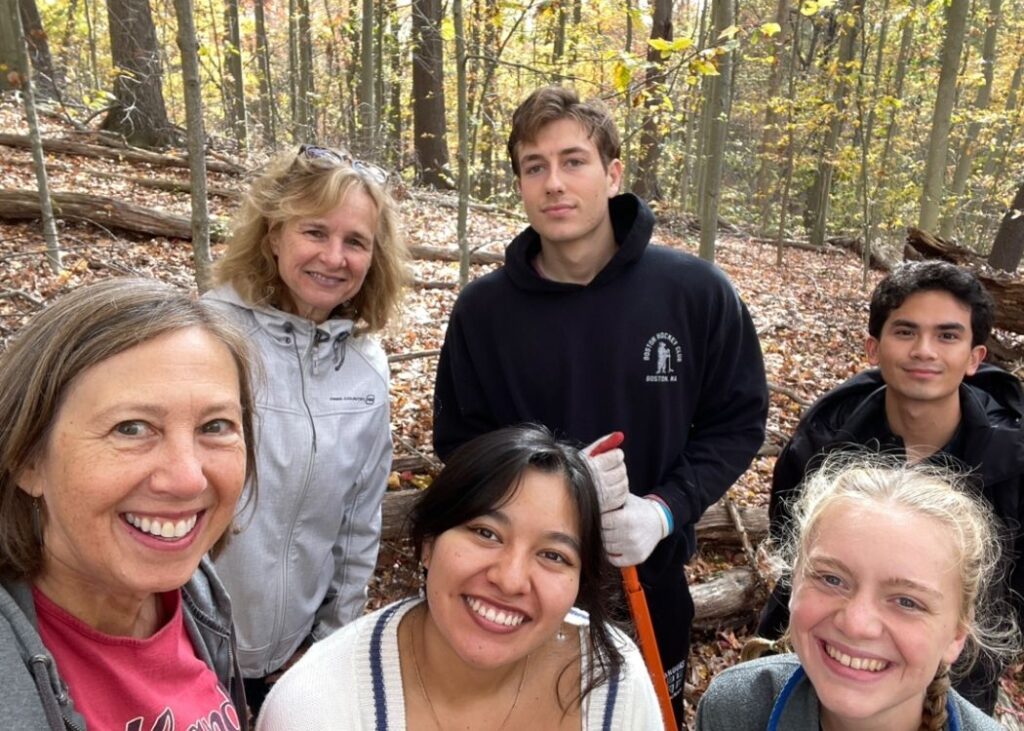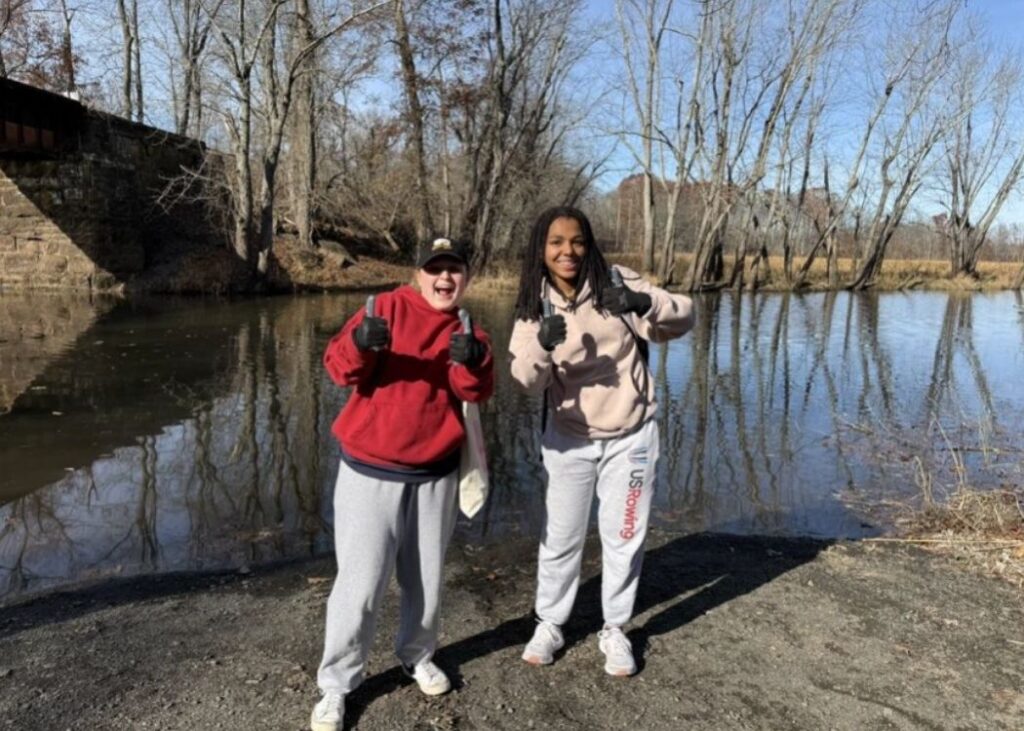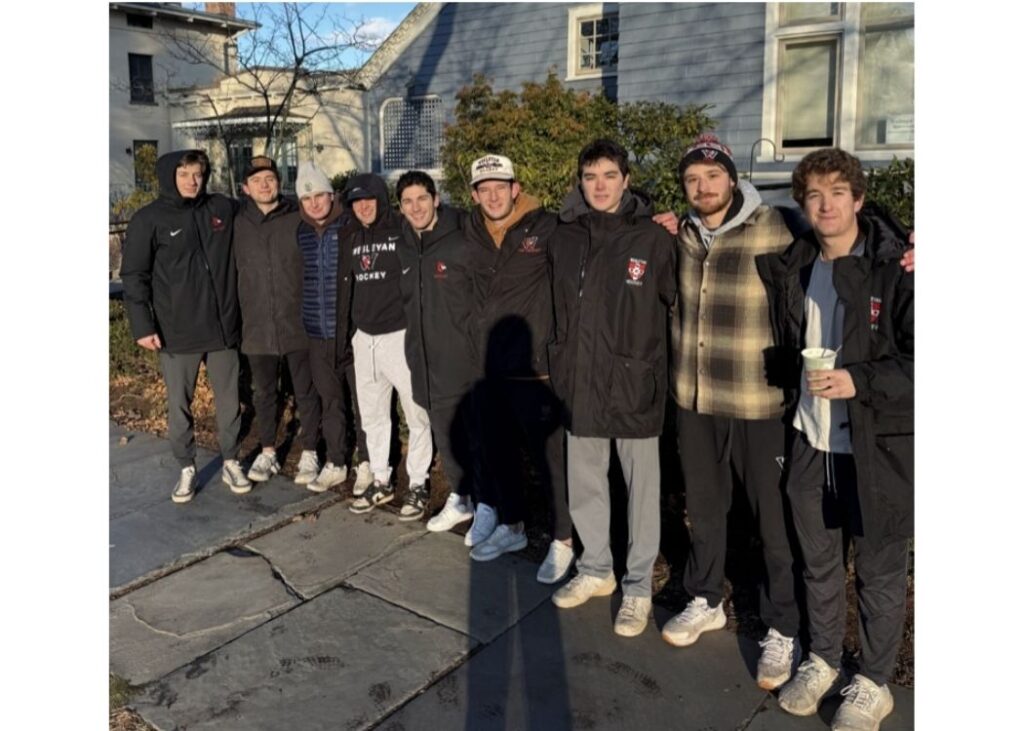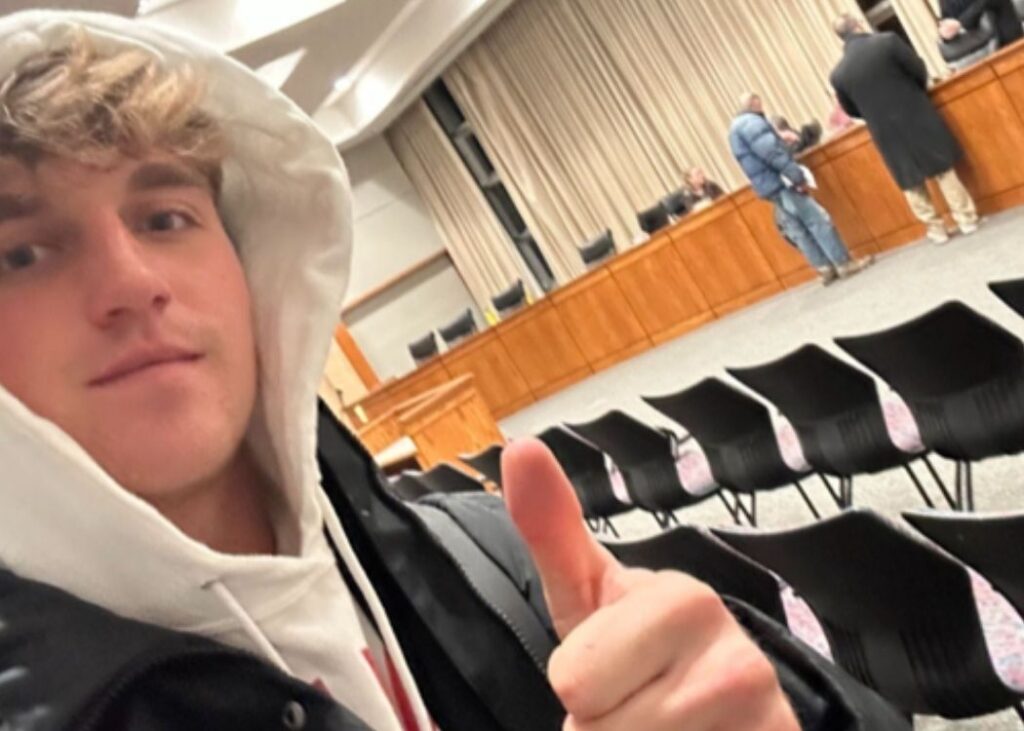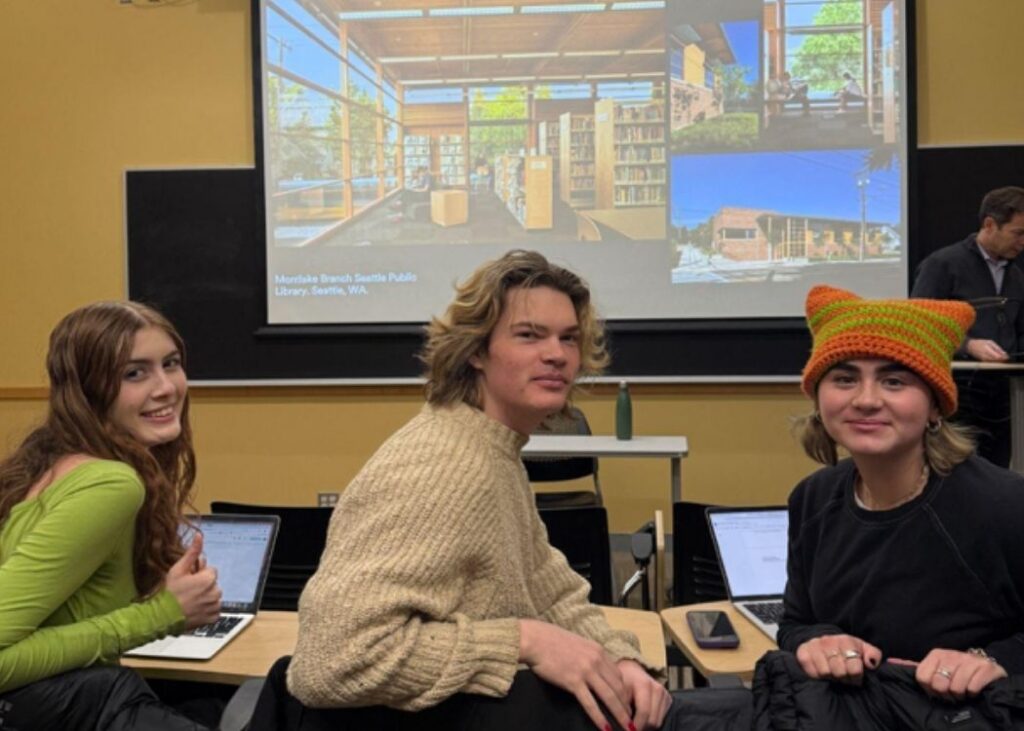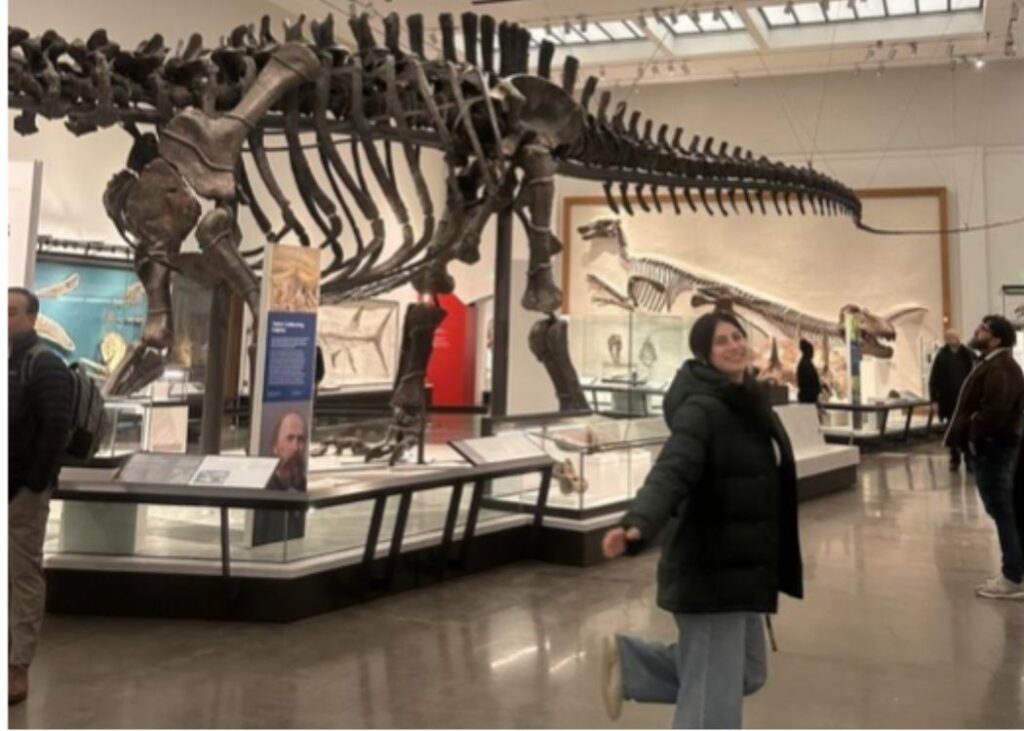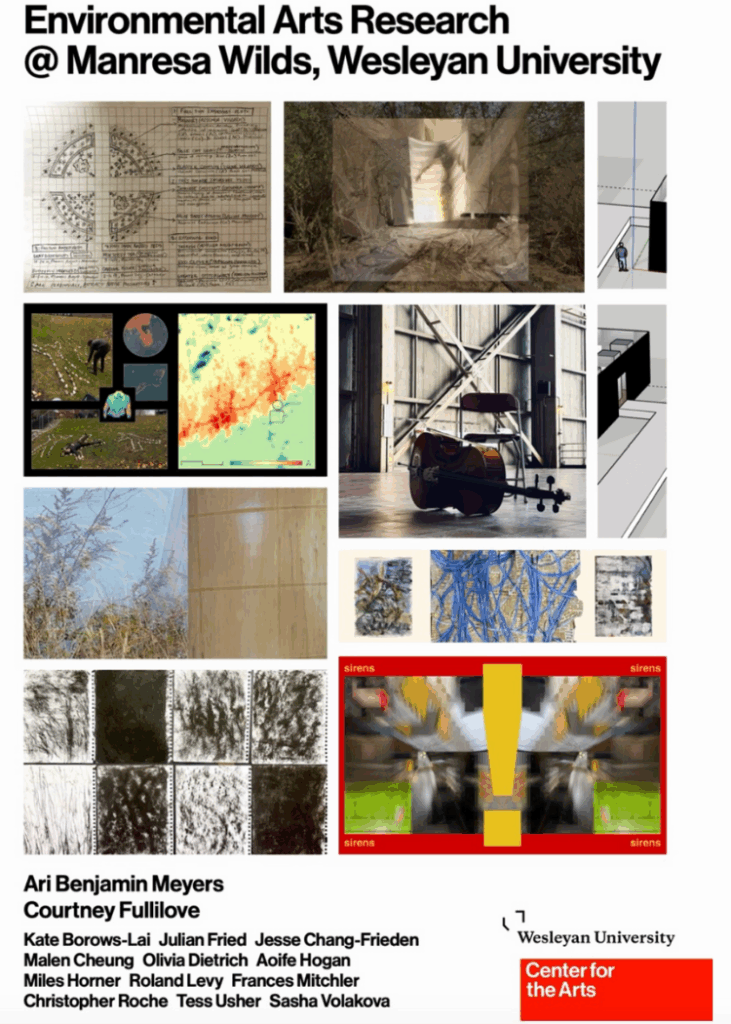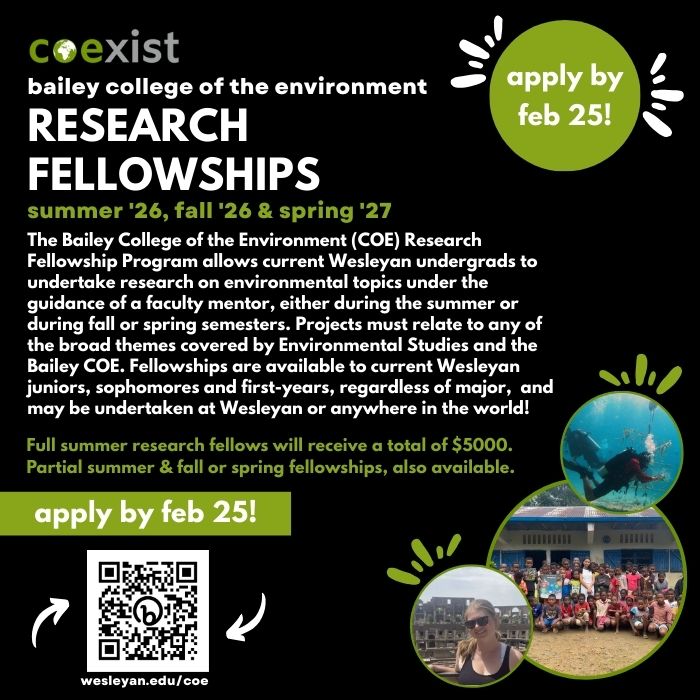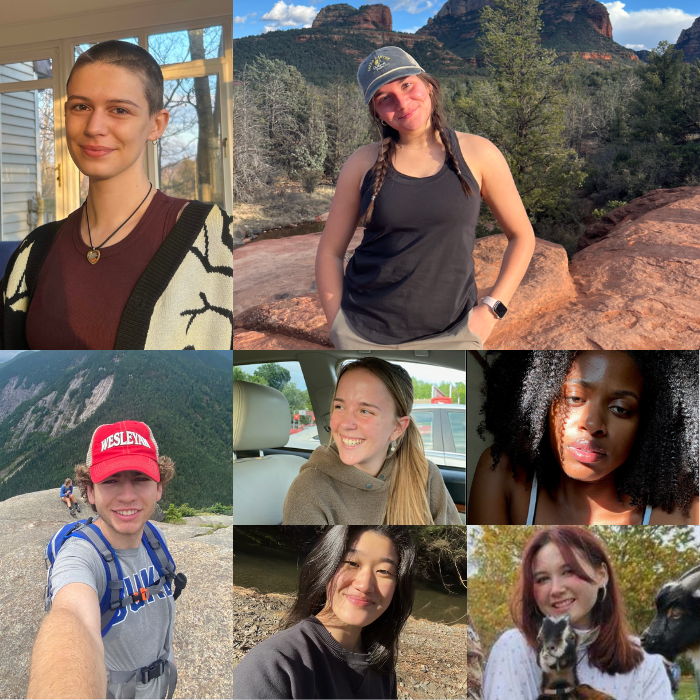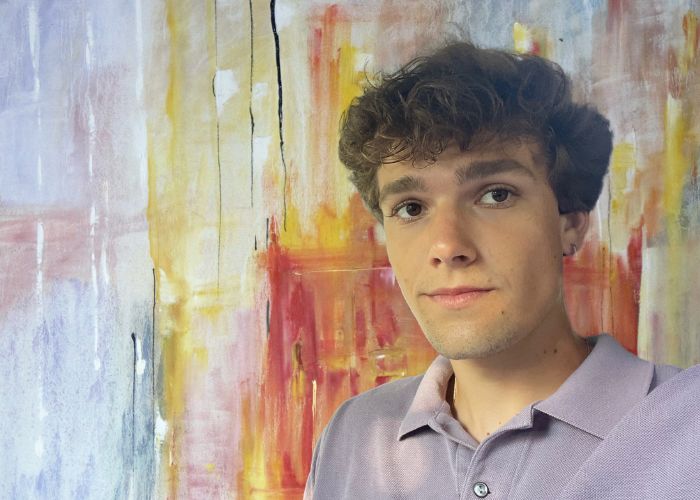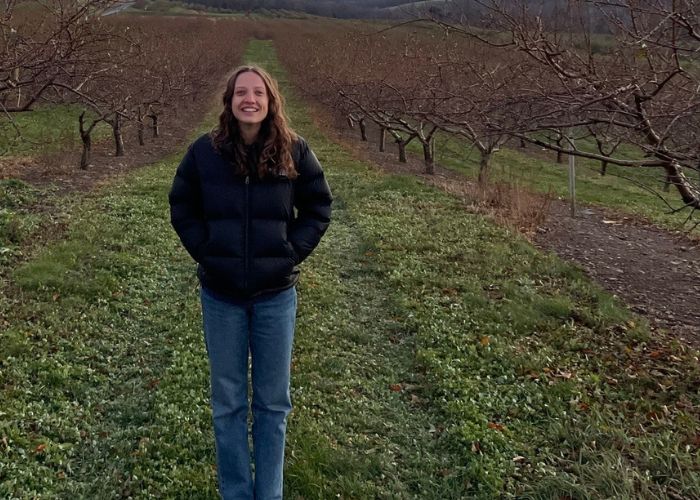by Kate Miller
One of the many activities in the primary gateway course to the Environmental Studies degree, Introduction to Environmental Studies (ENVS197), is the “Check it Out” assignment. Students are tasked with attending an environmental event on or off campus and submitting their reflection on key aspects, such as sponsoring organization, goals, audience and their own reactions. These can include films, talks, museum visits, conferences, meetings, workshops and volunteer events such as a landscaping work party, clean-ups and others.
Each semester more than 30 percent of the students choose a service project, and overwhelmingly their reflections convey a sense of comradery and satisfaction, and often a deeper understanding of what land stewardship requires. Most express a strong interest in doing it again.
Annabel Schneir reflected on a clean-up she and another student, Ella Hendricks, participated in at the closed landfill, which now hosts a kayak launch and trail. “I learned about a new place in Middletown, learned about what it looks like when erosion control goes wrong, and got the privilege to meet and observe how dedicated the locals are to preserving their environment. Everyone at the event was incredibly gracious, and it reminded me how good it feels to take action. It is hard not to be troubled by the state of our world, but doing something tangible, however small, makes it feel a little more bearable.”
Students visited a variety of on and off-campus locations for volunteer work, including Ravine Park, a city-owned preserve just a block from campus, which many used for a variety of other reasons including to conduct another project, the Ecosystem Walk, or for inspiration on their Nature & Art project.
